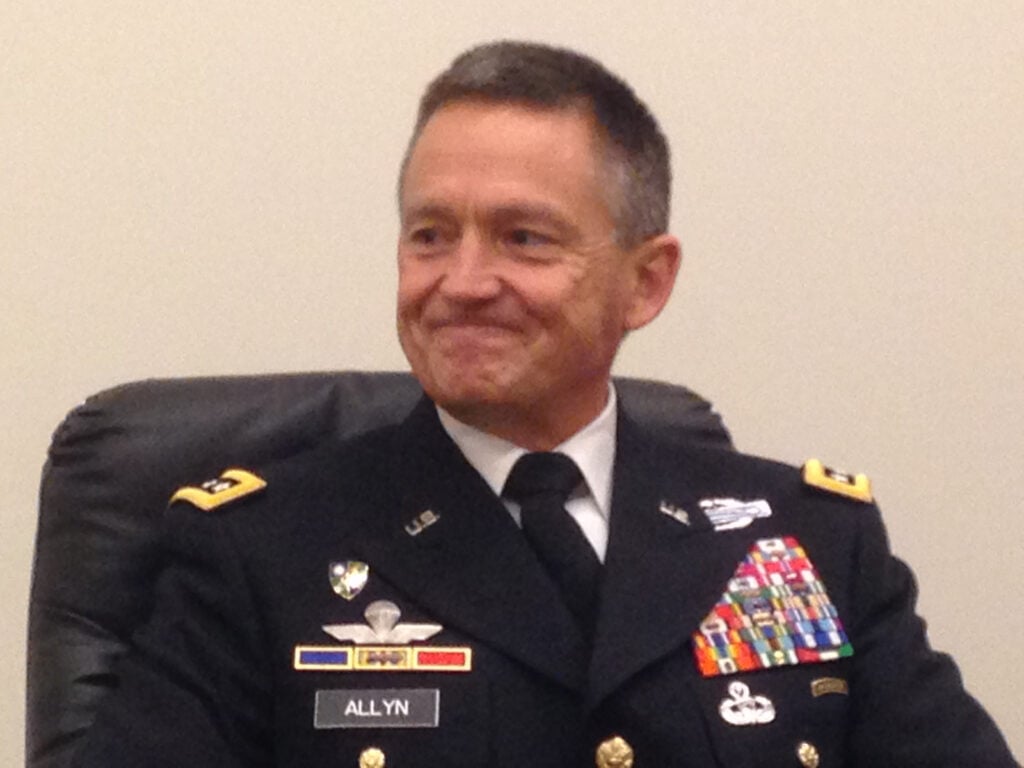New Army Vice ‘Extremely Concerned’ On Readiness
Posted on

Gen. Daniel Allyn, Army Vice-Chief of Staff
AUSA: Expanding on Chief of Staff Ray Odierno’s concerns, the Army’s new Vice-Chief of Staff detailed how “fragile” the service’s readiness is in the face of a 2016 sequester.
“We’re in a much better place than we were… a year ago,” said Gen. Daniel Allyn, who until August headed the Army’s main readiness outfit, Forces Command. “We’ve got 12 brigades that are postured and ready to deploy, some of them already performing contingency missions, but others in waiting.” It’s not quite apples to apples, but compare that to the two or three brigades (depending on how you count) that the Army had both ready and not already committed to Afghanistan or Korea a year ago.
“We’ve been able to build back much of the readiness that was lost due to sequestration in 2013, but that readiness is fragile,” Allyn told reporters at the Association of the US Army’s annual conference. “It takes predictable funding [and with] sequestration on the horizon in 2016, we are extremely concerned.”
In contrast to 2013, when the Army had to cancel seven brigade training exercises (or “rotations”) at its famously realistic training centers, this time around “our chief and our secretary have committed to keep the Combat Training Centers a priority if sequestration returns,” Allyn said. But keeping the lights on at the CTCs has a price elsewhere, he said: “The problem is if sequestration returns that means our home station training will be practically unfunded for all but the brigades that go to the Combat Training Centers.”
Even without sequester, the Army is already rationing or “tiering” readiness resources, with some units not funded to go through the full training cycle. “You get resourced below the level that you need, you have to make do with what you have, and we’ve been doing that for about three years now,” Allyn said.
“The problem,” he went on, “[is that] when the unexpected happens and you have a crisis that’s of a larger order, inevitably, you’re facing with the dilemma of delaying the deployment of units to ensure they’re trained and ready, or sending them in unprepared, which we as leaders in the Army have promised not to do.”
“I’ve deployed at just about every echelon of leadership in our Army,” Allyn said. “I’ve never had to deploy a unit that wasn’t prepared for the mission that it had and we don’t plan on starting.”
Subscribe to our newsletter
Promotions, new products and sales. Directly to your inbox.
